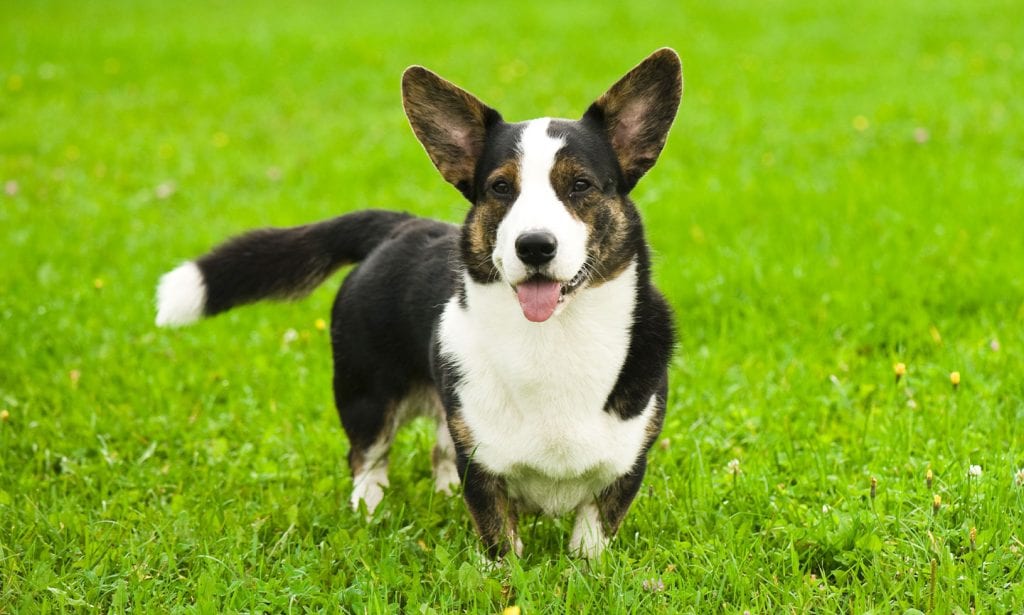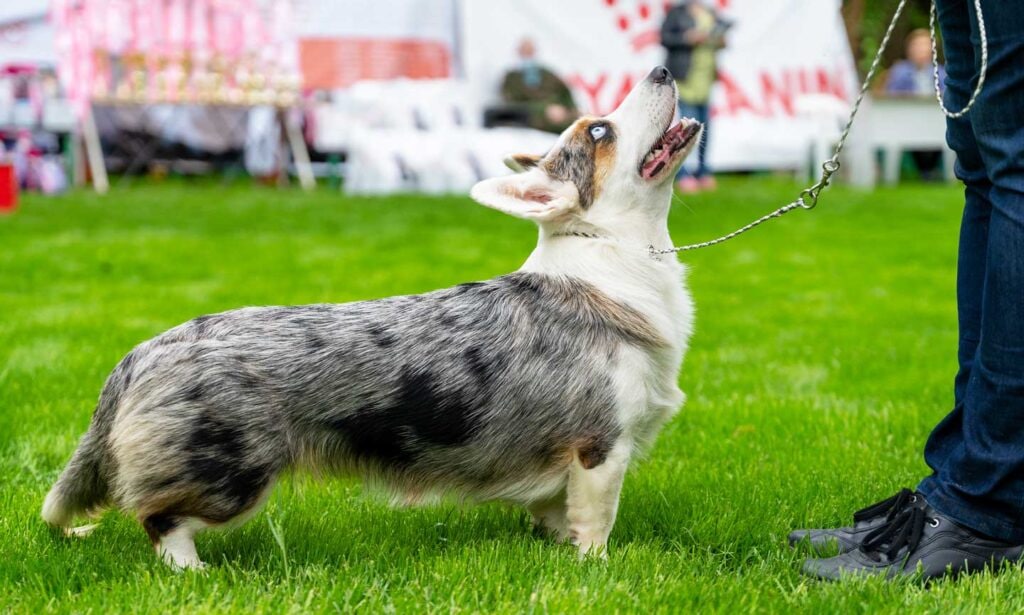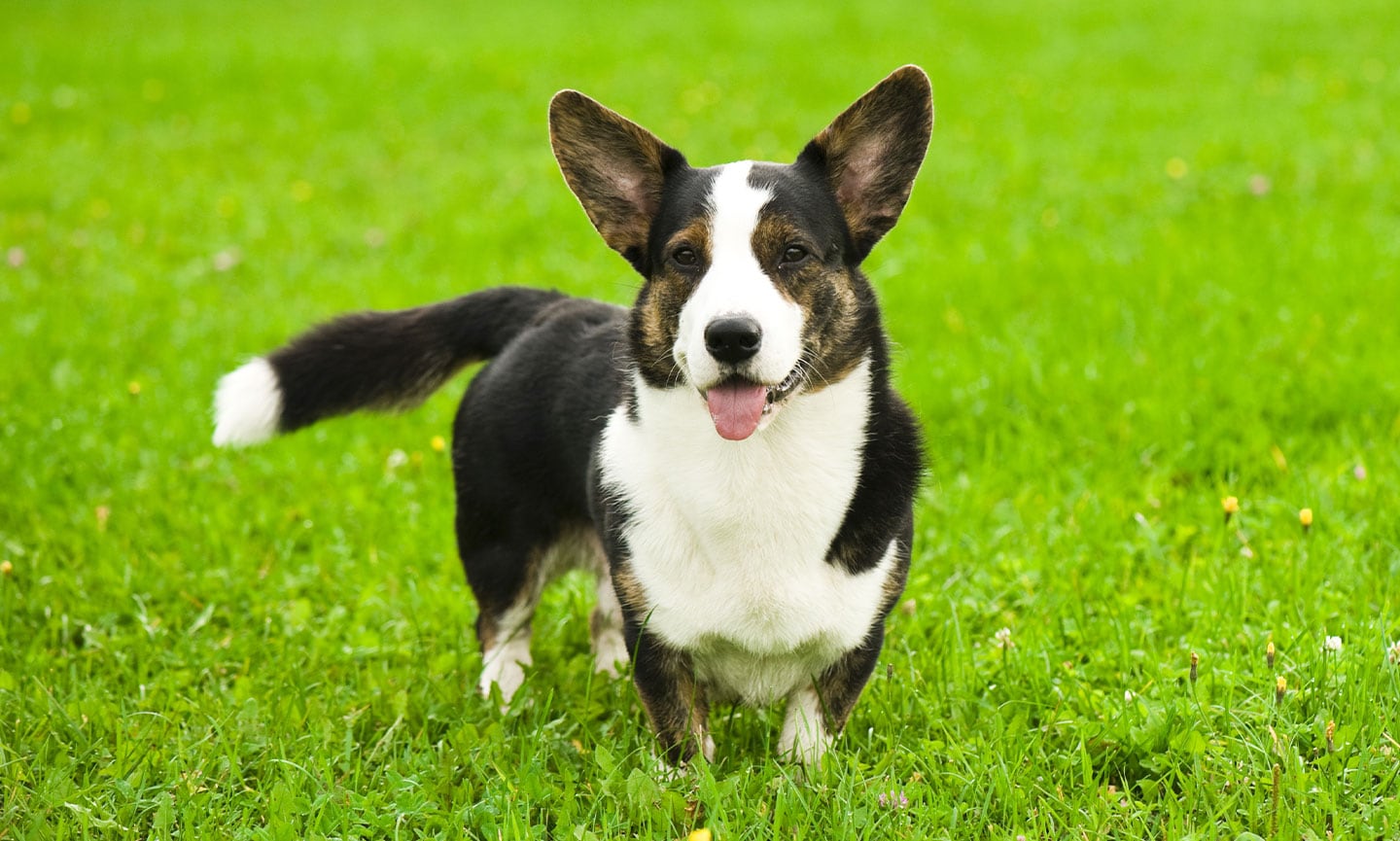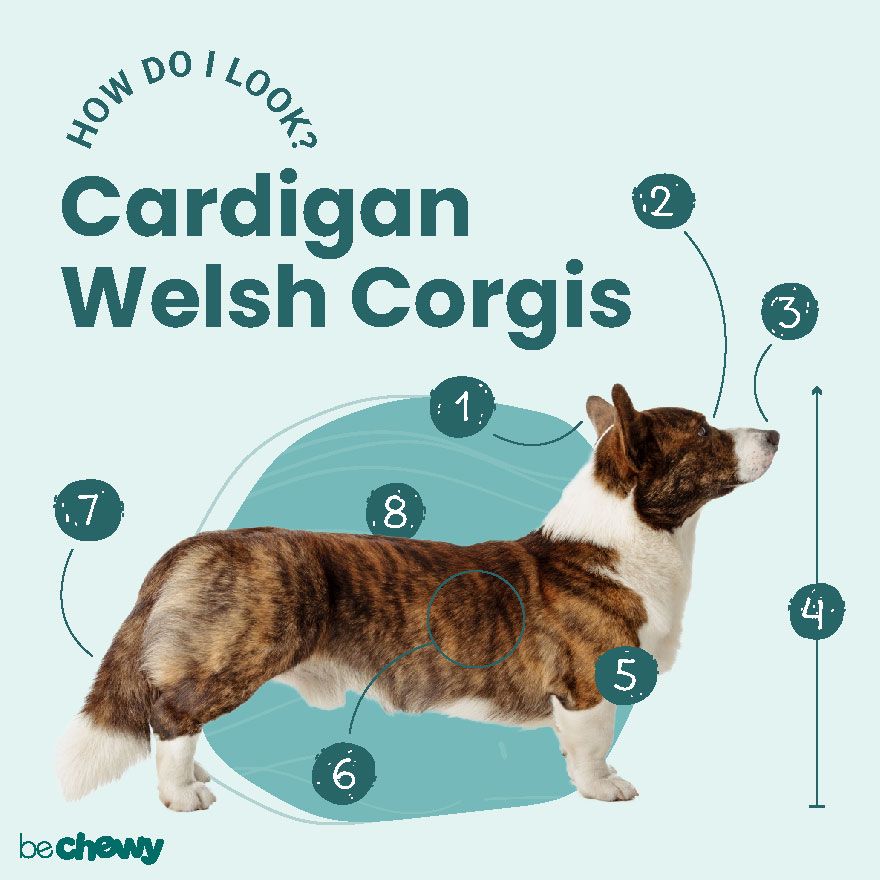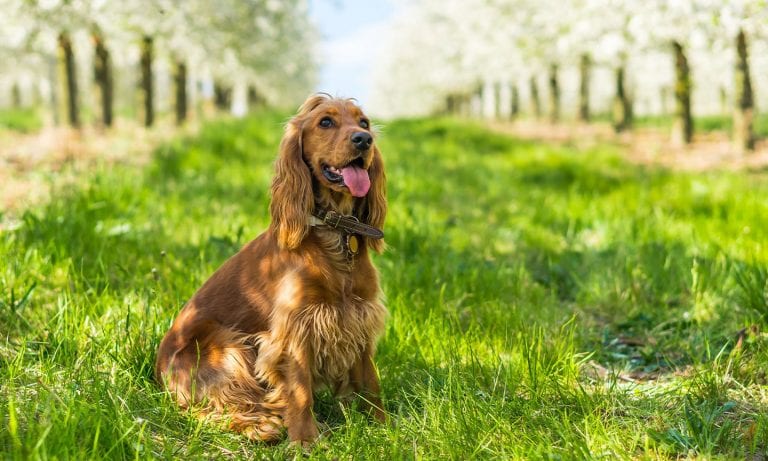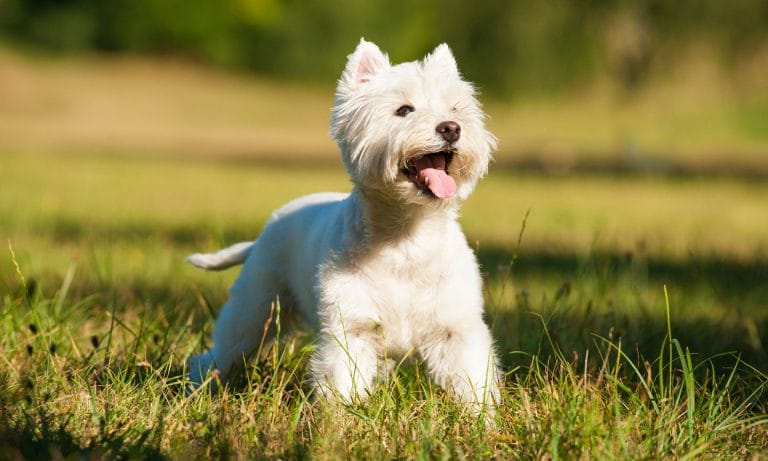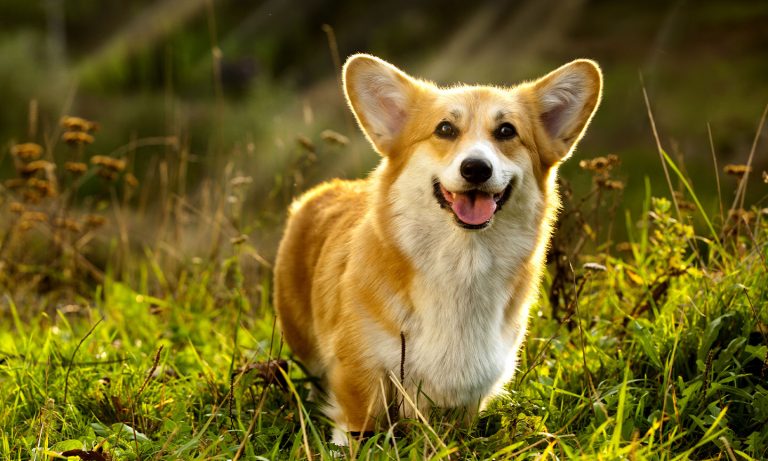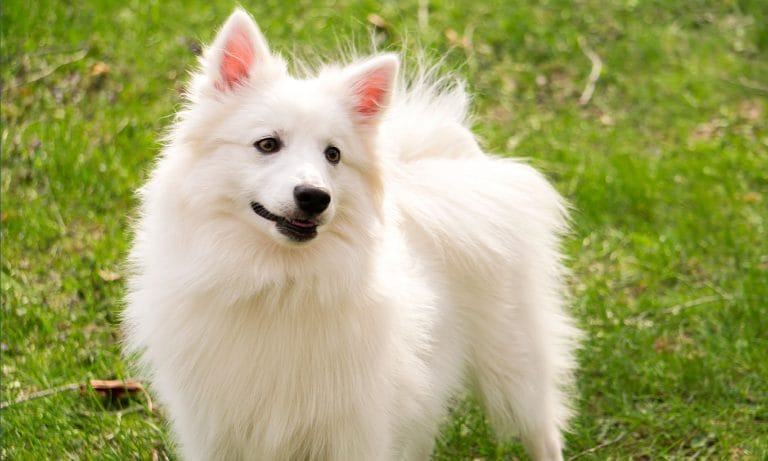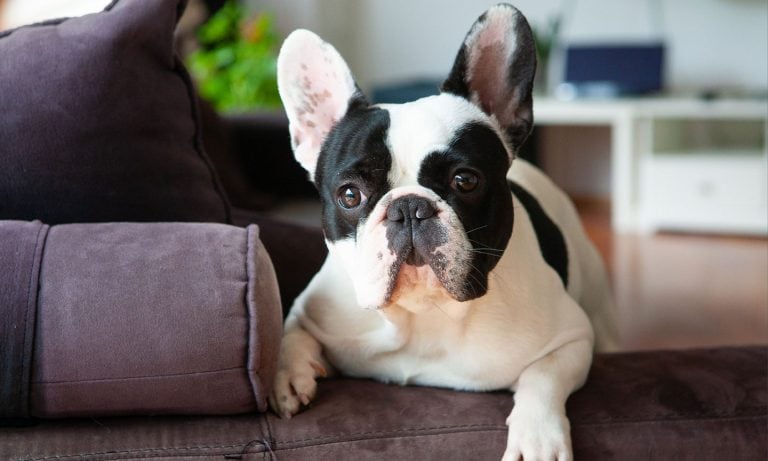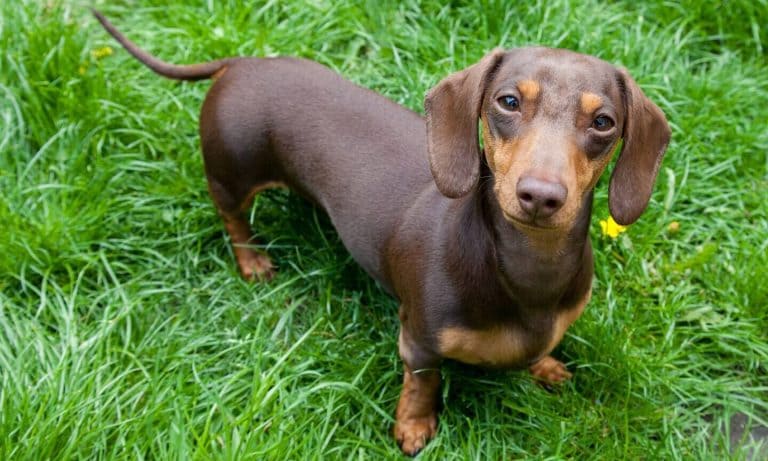Intelligent, fun-loving and adaptable, Cardigan Welsh Corgis are ideal pets for active families—with or without kids or other furry friends. Though short in stature, they were bred for herding and are surprisingly athletic dogs who enjoy playing fetch in the park (and have a big dog bark). When not romping around, the affectionate Cardigan Welsh Corgi is happy to sit by your side binge-watching your favorite shows. Plucky, playful and devoted, Cardis make excellent companions.
Breed Snapshot
Temperament:
Fun-lovingIntelligentFriendlyCoat Color:
Black And WhiteBlue Merle And WhiteBrindle And WhiteRed And WhiteSable And White
Best For
Cardigan Welsh Corgis are affectionate, vocal and playful pups known for their short legs and long, stocky frame. Their compact size makes them ideal for apartment dwellers, though they love having space to romp and family to frolic with.
Cardigan Welsh Corgi Temperament
Cardigan Welsh Corgi dogs are incredibly loyal to and affectionate with their families. These fun-loving pups get along well with kids, other dogs, and even cats, provided they’re properly socialized when they’re puppies. As a herding breed, your Corgi may try to herd your kids and nip at their heels, so remember to supervise playtimes with kids and your pup.
Their energy levels fall somewhere in between couch potato and triathlete. Cardis are just as happy to snuggle with you on the couch as they are to play outside all day—just as long as their family keeps them company. These smart dogs need variety in their training and exercise routine to keep them from getting bored and deciding your shoes make great chew toys.
Cardigans may take a while to warm up to visitors. Introducing them to new people when they’re puppies will help them warm up quickly to new friends as they grow up. And because these pups are big barkers, they’ll let you know whenever someone comes to the door.
How to Care for a Cardigan Welsh Corgi
Cardigan Welsh Corgis are relatively high maintenance. These good-humored charmers need a varied daily exercise routine, regular grooming and a lot of mental stimulation. A well-kept Cardi is a happy dog who will reward you with love and loyalty.
Cardigan Welsh Corgi Health
Cardigan Welsh Corgis have a lifespan of 12 to 15 years and are unfortunately prone to a few health issues. But with proper care, knowledge and vet visits, you can help your pup live a long and happy life.
- Intervertebral Disc Disease (IVDD): IVDD is the result of a herniated disc and secondary pressure on the spinal cord. Symptoms may range from back pain and lethargy to trouble or inability to walk. Depending on the severity, treatments range from pain medication and laser therapy to emergency surgery. Dogs with short legs and long backs are at higher risk for IVDD. Pet parents may help decrease the risks of their pup having back issues by using stairs for the bed/couch and limiting high jumping.
- Degenerative Myelopathy (DM): This neurological condition affects the spinal cord of older dogs, causing progressive weakness of hind limbs and loss of coordination. Genetic screening testing is available, so be sure to ask your breeder.
- Hip and Elbow Dysplasia: Dysplasia is when the joint isn’t formed properly and rubs, causing the dog pain. Symptoms include lameness and “bunny hopping.” Treatments range from weight management to physical therapy to surgery. There is no genetic screening test for dysplasia, but breeders should work to remove it from their lines by not breeding affected dogs.
- Progressive Retinal Atrophy (PRA): A dog with PRA gradually loses vision, often starting with night blindness. While PRA has no cure, dogs who lose sight can still lead happy lives. Genetic screening testing is available, so ask your breeder.
Cardigan Welsh Corgi History
The Cardigan Welsh Corgi’s history dates back to medieval times. As the oldest of two Corgi dog breeds and one of the oldest breeds in Britain, Cardigans are believed to have originated in 1200 B.C. when the Celts migrated with them from central Europe to Wales in the British Isles. Their name comes from the ancient kingdom of Cardiganshire and is a variation of the Celtic word for “dog.”
Throughout their long history, Cardigans have been excellent herding dogs due to their small stature and agility, protective traits, and ability to nip at the heels of cattle. Nowadays, these little doggies spend their time running around, protecting their family from the dreaded mailman and, if they failed obedience school, nipping at the heels of children.
Despite their differences, in Britain, Cardigans and Pembrokes, the favorite pup of Queen Elizabeth II, were considered a single breed until 1934. However, the first pair of Cardigans arrived in the U.S. in the early 1930s, and the American Kennel Club officially recognized them as a breed in 1935.
So, where is the best place to find the Cardigan Welsh Corgi dog breed today? You can find a list of reputable breeders at the American Kennel Club’s website. Cardigan prices average between $800 and $2,000, depending on the breeder. To adopt a pup, you can contact a Cardigan rescue organization, an animal shelter, or search Chewy’s database of adoptable dogs in your area.
FAQs
Do Cardigan Welsh Corgis shed?
Cardigan Welsh Corgis shed year-round, especially during their coat-blowing shedding season in the spring and fall. Still, it’s not excessive compared to other short-legged breeds like the Basset Hound. Keep it to a minimum with weekly brushings.
What is the difference between a Cardigan and a Pembroke Welsh Corgi?
The most significant differences are physical; the Cardigan’s tail is long (not docked), their ears are more prominent ears and they come in more color varieties than the Pembroke. Personality-wise, both are outgoing and love people, but the Cardigan may take a minute to warm up to strangers.
Are Cardigan Welsh Corgis good family dogs?
Cardigans are excellent family dogs; they’re intelligent, playful, and loyal to their loved ones. What more can you ask for?
Should I get a Cardigan or a Pembroke Welsh Corgi?
Your lifestyle and preferences will determine if you should get a Cardigan or a Pembroke Welsh Corgi. Pembrokes tend to be more outgoing and are always ready for a party. Cardigans are more reserved when meeting new people and take a bit to warm up.
What are the most popular Cardigan Welsh Corgi names?
Some of the most popular Cardigan Welsh Corgi names are Luna, Lucy, Charlie, Bella, Cooper, Daisy, Winston, Stella, Piper, Lola, Zoe, Willow, Milo, Millie, Bailey, Louie, Bear, Lily, Oliver, Max, Ellie, Bentley, Sophie, Dexter, Toby, Penny, Rocky, Molly, Loki and Sadie.
What are the most common Cardigan Welsh Corgi mixes?
The most common Cardigan Welsh Corgi mixes are:
- Corgi-Husky mix (Siborgi or Horgi)
- Corgi-German Shepherd mix (Corman Shepherds or German Corgi)
- Corgi-Chihuahua mix (Chigi)
- Corgi-Golden Retriever mix (Golden Retriever Corgi)
- Corgi-Dachshund mix (Dorgi)
Note: These are not purebred dogs but mixed breeds.
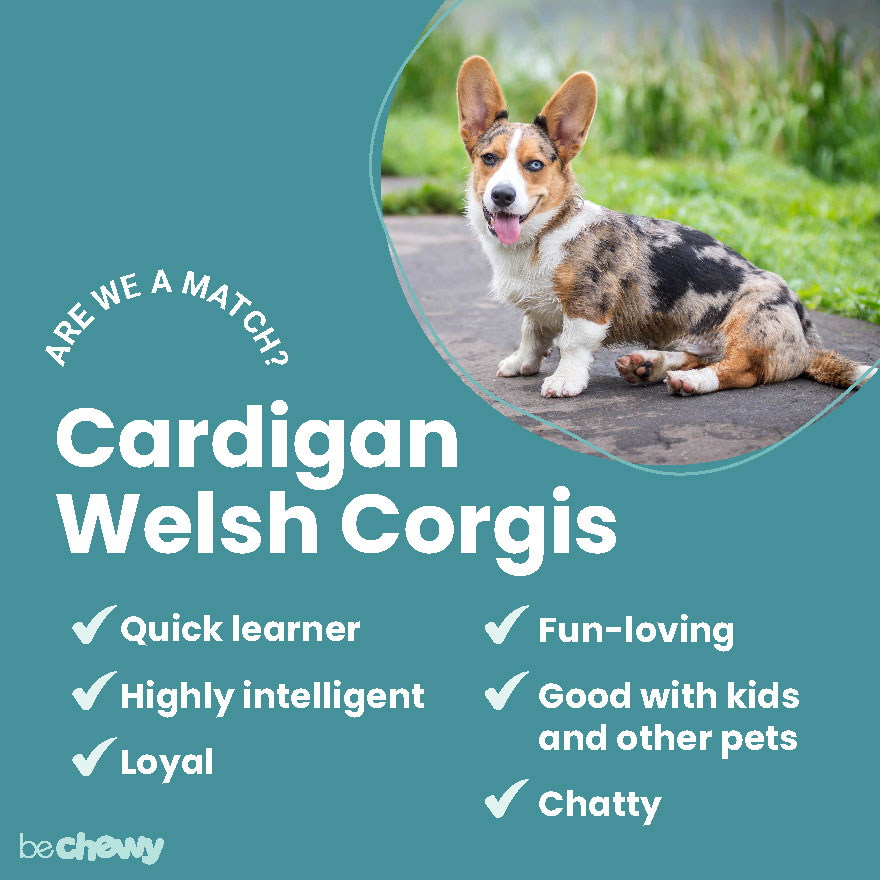
Top Takeaways
Cardigan Welsh Corgis are affectionate, loyal pets who make wonderful family members for patient pet parents. They may need a lot of socialization and activities to keep themselves out of trouble, but so what? These versatile, smiley-faced dogs live to make you happy, no matter if you’re adventuring outdoors or snuggling on the sofa.
Expert input provided by veterinarian and breeder Sara Austin, DVM who runs the Austin Veterinary Animal Hospital in Beaufort, N.C. and owner of Salty Creek Cardigan Welsh Corgis and Amber Walker, KPA-CTP, zoologist, and owner of Animal Intuitions.
Breed characteristic ratings provided by veterinarian Dr. Sarah J. Wooten, DVM, CVJ, a veterinarian at Sheep Draw Veterinary Hospital in Greeley, Colorado; dog trainer and behavior consultant Irith Bloom, CPDT-KSA, CBCC-KA, CDBC, owner of The Sophisticated Dog, LLC, in Los Angeles; and certified animal behavior consultant Amy Shojai, CABC, in Sherman, Texas.
The health content was medically reviewed by Chewy vets.

Search for Adoptable Cardigan Welsh Corgis Near You
Top Cardigan Welsh Corgi Names
These are the top Cardigan Welsh Corgi names as chosen by Chewy's pet parents!
Female Names
- Luna
- Gamma
- Daisy
- Maggie
- Millie
- Sophie
- June
- Ellie
- Leia
- Coco
Male Names
- Winston
- Loki
- Milo
- Finn
- Oliver
- Max
- Cooper
- Jack
- Ollie
- Henry
Share:
